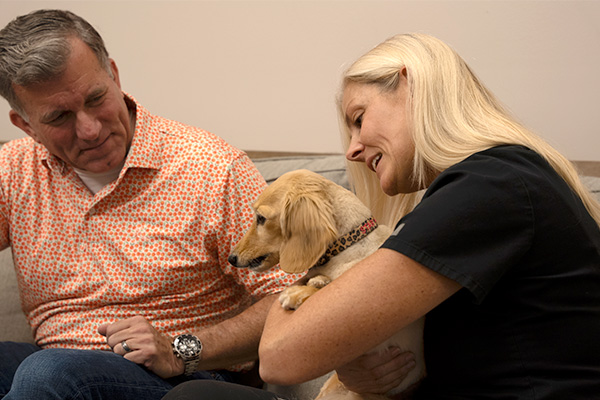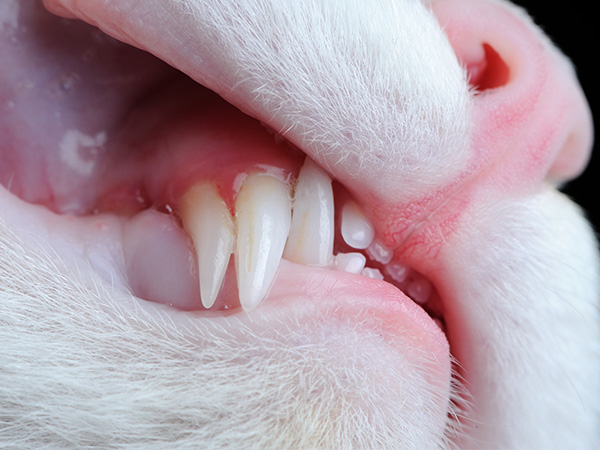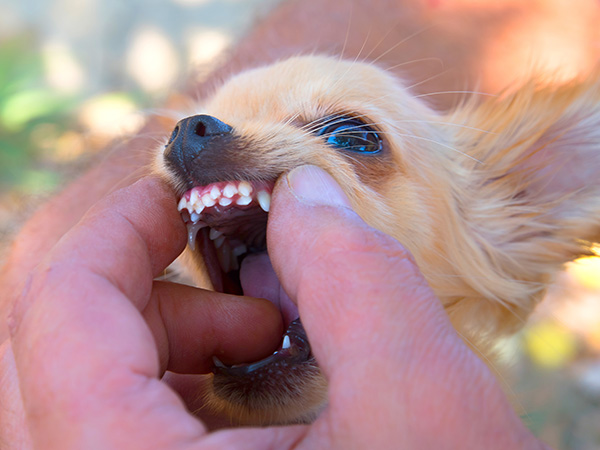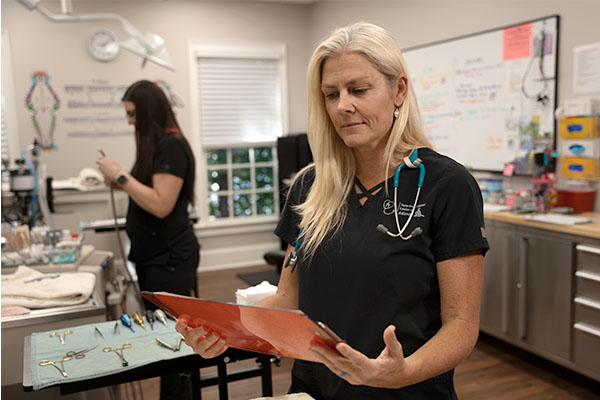Retained Deciduous Teeth
At the Veterinary Dental Center of Atlanta, we recognize that your pet’s dental health is essential to their overall well-being. Just like in humans, the natural development of teeth in cats and dogs doesn’t always go as planned. Retained deciduous teeth, a common issue, can impact your pet’s oral health. However, with proper care and early intervention, this condition can be effectively treated.
What are Retained Deciduous Teeth?
Just like human kids, puppies, and kittens lose their baby teeth as their adult teeth come in. Normally, this is a smooth process, but sometimes, a baby tooth doesn’t fall out when it should. This is what we call a retained deciduous tooth. It’s particularly common in smaller breeds but can show up in any furry friend.
Causes of Retained Deciduous Teeth
-
Genetic Predisposition
Certain breeds, particularly small breeds like Toy Poodles, Maltese, and Yorkshire Terriers, are more prone to issues with retained deciduous teeth. This predisposition is often genetic, passed down through generations.
-
Improper Dental Development
Sometimes, the root of the deciduous tooth does not resorb properly, preventing it from becoming loose and falling out as the adult tooth pushes through the gum.
-
Trauma or Injury
Injury to the mouth area can disrupt the natural shedding of baby teeth. This can be due to rough play, accidents, or chewing on hard objects.
-
Nutritional Factors
Poor nutrition during the puppy or kitten stages can affect dental health, potentially influencing the normal resorption of baby tooth roots.
Symptoms of Retained Deciduous Teeth
Recognizing the symptoms early can help prevent complications associated with retained deciduous teeth. Here are the key symptoms to watch for:
-
The most obvious sign is seeing small, often pointy baby teeth remaining next to the larger, permanent teeth. Typically, deciduous teeth should be gone by the time your pet is about six months old.
-
Bad Breath (Halitosis)
An unusually foul odor from the mouth can be a sign of decaying food and bacteria trapped between crowded teeth, a common issue when deciduous and permanent teeth are crammed together.
-
Gum Irritation and Inflammation
Look for red, swollen, or bleeding gums around the retained teeth, which indicate irritation and possible infection.
-
Discomfort or Pain
Pets might paw at their mouth, shy away from being touched around the face, or appear reluctant to eat, especially hard food, due to pain or discomfort in their mouth.
-
Difficulty Eating
You may notice your pet dropping food, chewing on one side, or showing a sudden preference for softer foods.
-
Altered Jaw Development
In severe cases, retained baby teeth can cause a misalignment of the jaw, affecting how the upper and lower teeth fit together.
Why Worry About Retained Baby Teeth?
Retained deciduous teeth occur when the baby teeth do not fall out as the adult teeth come in. This can lead to several problems:
-
Crowding
Multiple teeth occupying one spot can lead to crowding, making it difficult for your pet to chew properly.
-
Misalignment
This condition can cause the permanent teeth to grow in crooked, possibly leading to difficulty eating and oral pain.
-
Increased tartar buildup and gingivitis
Crowded and misaligned teeth can collect food and debris, leading to tartar buildup and, eventually, gingivitis.
-
If not addressed, these issues can progress to more severe periodontal diseases, affecting your pet’s overall health.
How Veterinary Dental Center of Atlanta Can Help
Here at our VDCA, we’ve got all the tools and expertise to deal with these pesky baby teeth. Our approach includes:
- Thorough Dental Exams: We start with a detailed checkup to see what’s going on in your pet’s mouth. This might include dental X-rays to get a full picture of the teeth alignment and root health.
- Professional Tooth Extractions: If we find any retained deciduous teeth, our skilled vets can gently remove them, making room for the adult teeth to settle in comfortably.
- Dental Cleaning: We’ll also clean those teeth, removing any plaque or tartar build-up and ensuring those adult teeth have a clean, healthy start.
- Ongoing Care and Advice: Aftercare is crucial. We’ll give you all the tips and tricks for keeping your pet’s teeth sparkling at home, from brushing routines to dental-friendly treats.
If you suspect your pet might be dealing with retained deciduous teeth, or if you have any concerns about their oral health, please contact Veterinary Dental Center of Atlanta at (770) 807-9435. Our compassionate veterinary dental team is here to provide the highest standard of care for your beloved pet. Schedule an appointment today to ensure your pet’s mouth remains healthy for years to come!




